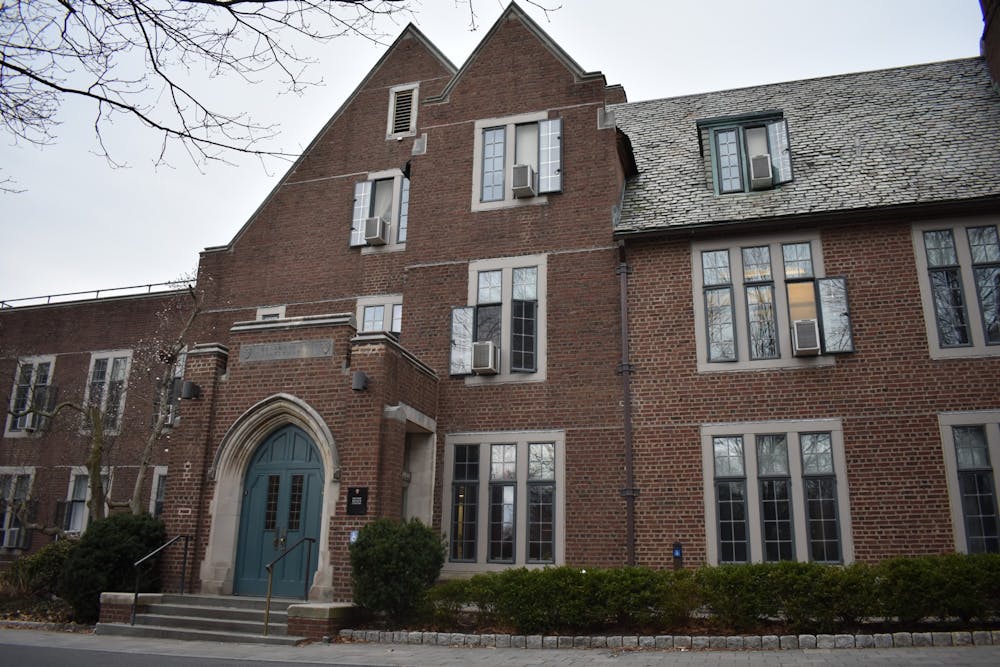I would like to issue a content warning as this column addresses statistics concerning domestic violence, physical and sexual assault, and partner abuse. For resources regarding reporting and intervention, please visit https://www.thehotline.org/.
About a week ago, I was discussing Women’s History Month with a classmate of mine before our (non-Princeton) class. Our conversation was interrupted by a nearby male classmate. He said, “Yeah, I’m all for this equality thing — I think I deserve the right to hit a girl.”
It’s horrifying that this was not the first time I’ve heard such a sentiment from a man during a discussion concerning women’s rights. Unfortunately, such comments are not confined to my hometown; I’ve heard them at Princeton too.
When I think about women’s rights, I dream of being paid the same as my male counterpart in my Architecture career. I fantasize about what might sound like the most outrageously simple things: fewer incidents with creeps in broad daylight at the most common locations, not hearing disgusting insults that refer to female body parts; better, more diverse representation of all women of all shapes, sizes, and colors; and — as absurd as it sounds — bigger pockets on women’s clothing. These are basic requests.
Meanwhile, some men have the ability to hit a girl atop their list of priorities. And it’s because of this that I would like to take space to remember the severity of issues relevant to Women’s History Month.
According to the National Coalition Against Domestic Violence (NCADV), nearly 20 people every minute are physically abused in some way by an intimate partner. This means that by the time you are finished reading this column, over 50 people will have been injured.
One in four women and one in nine men experience intimate partner violence. This includes (but is not limited to) hitting, strangling, choking, sexual assault, and stalking. The after-effects of these incidents or ongoing abuse involve physical injury, sexually transmitted disease, unwanted pregnancy, post-traumatic stress disorder, and more.
Even more common yet is the act of physical brutality. One in three women and one in four men have experienced some form of physical violence by an intimate partner. This includes (but is not limited to) slapping, pushing, and shoving. However, NCADV asserts that some of these forms of violence might not fall under “domestic violence” specifically — this is how normalized cruelty is.

An equally grievous statistic reflects that 19.3 million women and 5.1 million men have reported that they were stalked by a current or former intimate partner in their lifetime. There are only two states in the United States in which the general population is more than the sum of the two figures, 24.4 million. Thus, the number of people who have experienced stalking currently exceeds the total general population of any given state in the United States except California and Texas.
Seventy-two percent of murder-suicides involve intimate relationships. If one believes that these incidents are rare, they have been deceived. According to the Violence Policy Center, each week in the US, 11 murder-suicide incidents occur for a total death rate of 1,200 Americans each year.
Ninety-four percent of those homicide victims are female.
In the United States alone, over 10 million people each year are abused by an intimate partner.

Collegiate women between the ages of 18–24 are three times more likely than the average woman to be the victim of sexual violence. Women not in college, but still in this age group, are four times more likely than the average woman to be the victim of sexual violence. These women are in our Zoom meetings, live next door to us in dorms, edit this newspaper, play our intercollegiate and intramural sports, and work alongside us on the weekends.
Remember this the next time a man jokes about his “right” to hit a woman.
Sally Jane Ruybàlid is a member of the Class of 2022 in the School of Architecture, on leave for AY 2020-21 due to COVID-19, from Trinidad, Colorado. She can be reached at sjr4@princeton.edu








